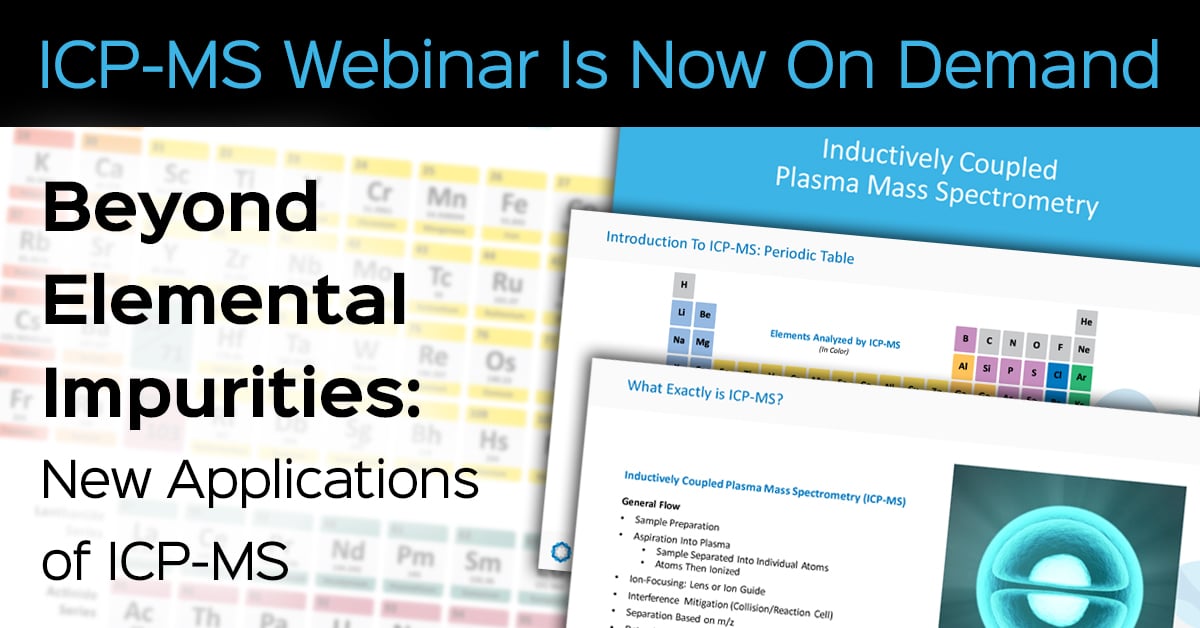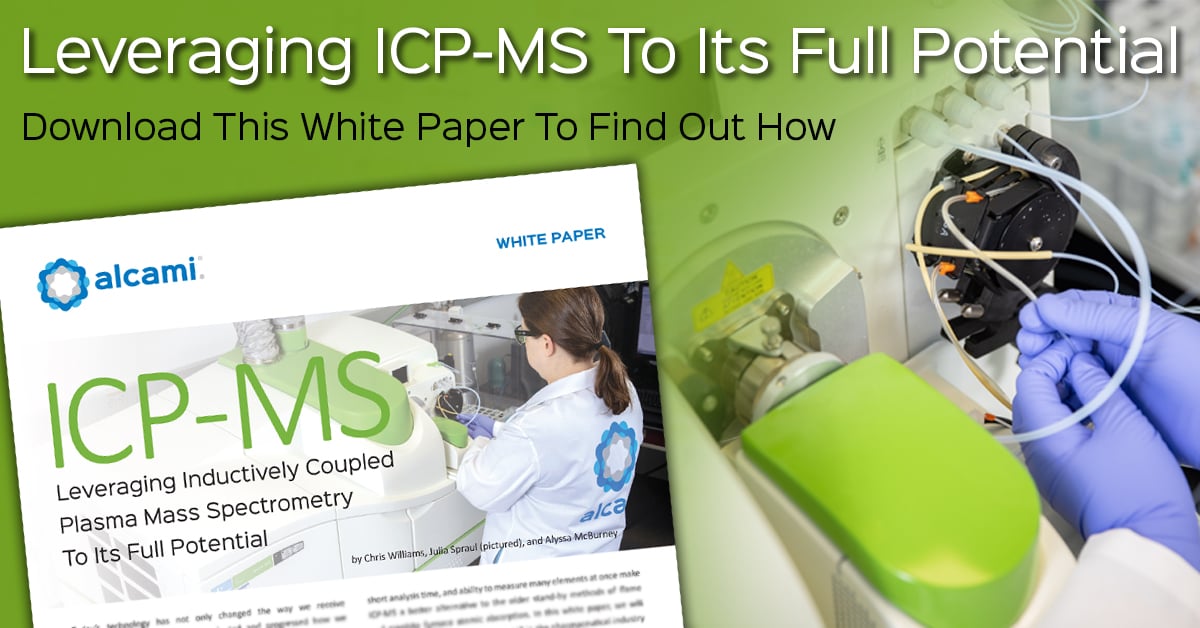The new elemental impurities regulations stress the importance of controlling all sources of elemental impurities in drug products. The regulations also impact all upcoming and current commercial drug products for human use. To comply with these regulations, it is critical to have an efficient, cost-effective, and agency-accepted approach. Alcami has the experience and agility to expertly handle your ICP-MS requests.

ICP-MS Capabilities
- Limit testing
- Catalyst control
- Extractables and leachables
- Organometallics
- Full quantitation analysis
- Assays
- Improved testing accuracy and speed
- Initial elemental impurity assessment
- Risk assessment on current material
- Risk assessment report for filing
- Samples with unknown metal impurities
- Standalone elemental impurity method
- Validated method for testing at release
The US Pharmacopeia (USP) retired the existing wet chemistry heavy metals methods outlined in USP General Chapter <231> with an instrument-based approach on January 1, 2018. Though the existing wet chemistry methods have been in effect for nearly 100 years, the methods are non-specific and frequently fail to detect or underestimate the presence of some toxic elements that are potentially present in pharmaceutical ingredients.
The USP heavily supports Inductively Coupled Plasma Mass Spectrometry (ICP-MS) as the replacement technique to screen and/or accurately quantitate the presence of any metals of interest. USP General Chapters <232> and <233> Elemental Impurities Limits and Procedures is the expected norm for evaluation and are already accessible monographs for analysis.
Ready to Get Started?
Complete this form to connect to a member of the Alcami team.



